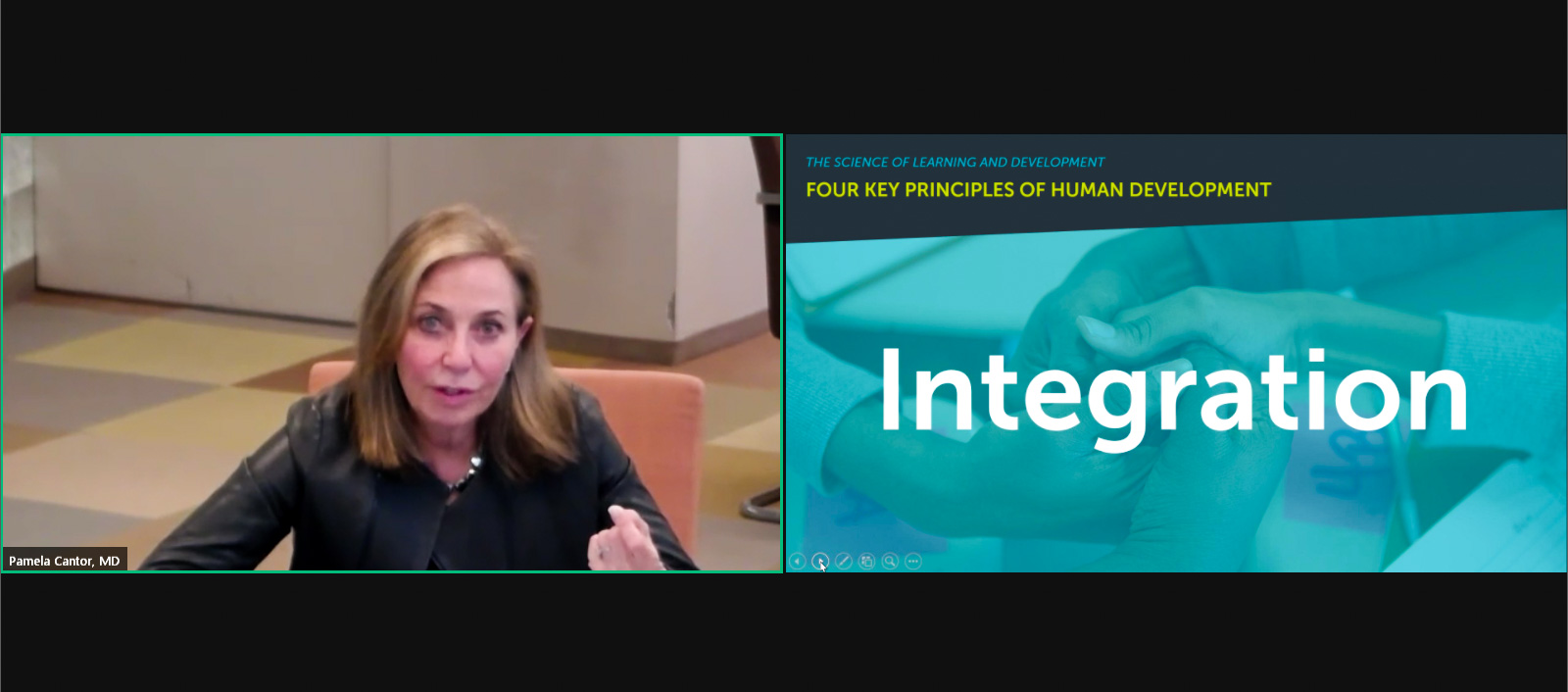Pamela Cantor, M.D. presents to Raikes Foundation / EdCounsel webinar on Inter- and Intra-Personal Development and ESSA
On February 12, 2018, Turnaround for Children President and CEO Pamela Cantor, M.D. was the guest presenter for February’s installment of a monthly Raikes Foundation and EducationCounsel webinar and conference call on Inter- and Intra-Personal Development and ESSA.
February’s call was centered around a set of articles published in January in the peer-reviewed journal Applied Developmental Science— “Malleability, Plasticity, and Individuality: How Children Learn and Develop in Context” and “Drivers of Human Development: How Relationships and Context Shape Learning and Development.” The papers, co-authored by Dr. Cantor and Lily Steyer from Turnaround, along with colleagues David Osher and Juliette Berg from the American Institutes for Research and Todd Rose from the Harvard Graduate School of Education and Center for Individual Opportunity grew out of the Science of Learning and Development (SoLD) initiative, a collaborative effort focused on elevating and translating a diverse but increasingly convergent body of scientific literature to support the transformation of the systems that educate children from birth to adulthood. The papers synthesize research from multiple disciplines on what is understood and what can be done to help all children develop in healthy ways, no matter their start in life or the adversity they might experience as they grow up.
During the webinar, Dr. Cantor remarked: “Whole child development requires that we use developmental science and learning science to create environments for children that promote connectivity and integrated development. Schools in the U.S. were not fundamentally designed to support whole child development and the fullest expression of a child’s potential. Today, we know much more about what to do. If we applied just the knowledge we have today to our practice, we could put many more students on a path towards healthy development, academic achievement and successful, fulfilling lives.”


Share This Story